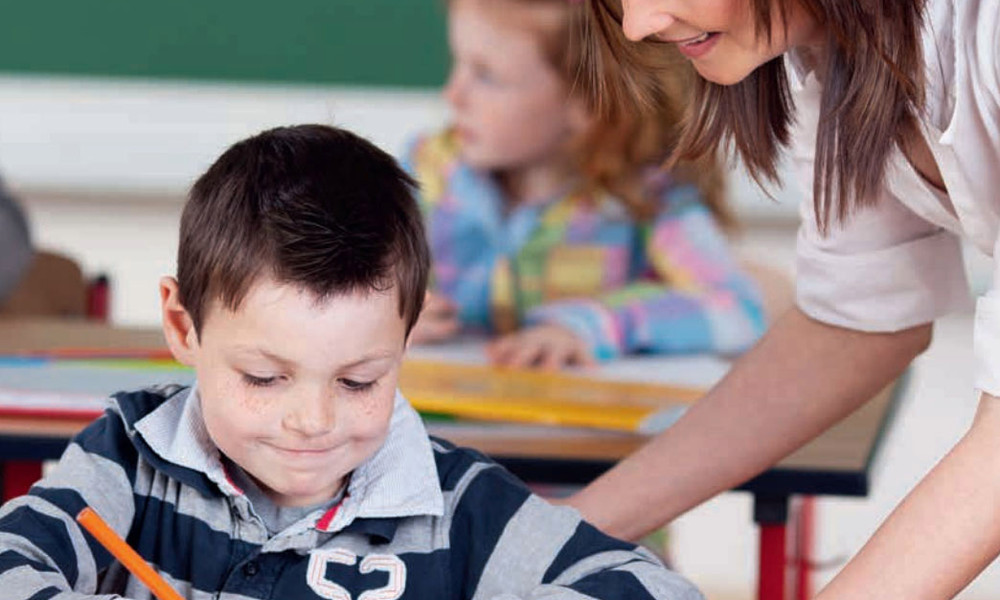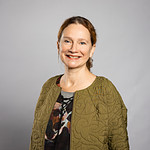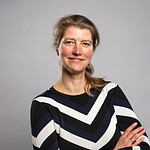Equal opportunities and participation for children with autism spectrum disorders
- Research stories

According to the law, schools must ensure that all children can go to a regular primary school, unless intensive supervision is needed for a child. In principle, there should also be room for children with an autism spectrum disorder (ASD) at a 'normal' primary school. But teaching children with ASD is not easy. It requires certain skills.
This is why senior researcher Carla Geveke and professor Henderien Steenbeek (together with other researchers and institutions) are developing tools for teachers and youth care workers to make education more accessible. 'Because a child with ASD is talented as well, if approached in a talented way.'
Children with ASD often get into trouble in education. Some of them even get completely stuck and then stay at home for years, with all the consequences that entails. That's a shame, because it's not that children with ASD don't want to learn, or aren't able to learn. With the right approach, many of these children can keep up. But that approach does require certain skills from teachers and social workers to include these children in the classroom, to make them feel comfortable and to stimulate their learning behaviour.
The research in the Diversity in Learning and Behaviour research group that Steenbeek and Geveke are doing into talent development in children with ASD is in fact a result of the Talent Power research project, which was initiated in 2006 by Robbert Dijkgraaf, now our science minister. He did this based on the idea that every child is naturally curious and wants to learn, and he wondered how you can maintain that inquisitive view in people. And especially for science and technology. When this project ended, Hanze University of Applied Sciences continued, under the name Curious Minds, with the practical application of that TalentenKracht vision, now including art and sports. And also including pupils who need more support in the classroom, such as children with ASD, which the Diversity in Learning and Behaviour research group is researching.
Steenbeek and Geveke have now conducted a whole series of studies in the ASD line. Not just by themselves, of course, but together with many partners such as Public Education Groningen, Cosis and Team050, in networks and through cross-connections with other research projects. For example, in the project 'T PASST WEL! they were able to develop tools on how to approach children with ASD in a talent-oriented way for teachers and youth care workers who support children with ASD in the classroom. The follow-up study, 1+1=3 't PASST Samen, continues this and makes concrete how teachers and youth care workers can jointly shape an integrated approach to children. In addition, the researchers are also helping to develop an ASD educational care facility for children with ASD who have ended up at home.
All Curious Minds' research has a practical and development-based motto: everyone is talented, provided they are approached in a talented way. 'And not focused on who can become the best of the group or who achieves a certain standard,' Geveke explains, 'but on how you can improve in relation to yourself.'
This talented behaviour can also be seen in children with ASD. And because these children are quick to shut down, it's sometimes small things, such as when they look up, smile, or show other behaviours that show they're actively listening. The researchers learned that this behaviour can be stimulated, and three things are important:
Susanne Wijstra, from primary school Het Kompas in Assen, can confirm this. From 2016 to 2018, she participated in the research project Create a Positive Talent Aspiration. She had a boy with ASD in her class (group 4/5) and sometimes didn't know what to do with him, she says. 'During a spelling instruction, for example, he became overstimulated and then he didn't want to join in anymore, turned away from the group and closed himself off.' That changed when Wijstra went along and gave him individual instruction, at his own level. This allowed him to get to work while Wijstra gave the classroom instruction. That worked so well, she says, that eventually he didn't need that individual instruction anymore, and he was able to participate in the classroom instruction.
This example is now one of the good practices collected by Geveke and Steenbeek. Video examples of teachers and youth care counsellors who stimulate talent development in children with ASD and thus increase the chances of these children. Not least because children with ASD are then not so likely to stay at home, rather than be at school.
The objective of the ASD line is to develop ways for teachers and youth care workers to learn how to stimulate the talent development of children with ASD. In other words: by ensuring that there is a positive talent spiral, so there’s a smaller chance of a negative spiral with school dropout and staying home. What works well, as it turned out, is coaching and network learning. In this way, professionals (teachers/youth care workers) not only learn from the experienced coach who observes them in the classroom or on video, but also from each other, by using the knowledge and experiences from their own network.
In network learning, the professionals spar with each other about learning issues they encounter themselves. 'For example: how do I ensure that my student with ASD plays together with others on the square and doesn't just stand by and watch?' says Geveke. But also what is possible within learning pathways and the teaching methods of the school. The great thing is: this is also based on talented learning, but for professionals.
‘What is also effective,’ Steenbeek adds, ‘is if the professionals get to work on the topic discussed after a meeting at their workplace and share their experiences in the meeting afterwards, for example in the form of a video. This has resulted in a rich palette of experiences, such as that of Wijstra.’
But the professionals also learn from an experienced coach, for example a remedial educationalist, or remedial teacher, or an experienced supervisor of children with ASD. They will first follow train-the-coach sessions at Hanze University of Applied Sciences. The coaches refresh their knowledge and share experiences with each other. Here, too, a talent-oriented approach is central: how do you empower the coachee so that this professional will also grow? 'So that positive psychology idea applies there too,' says Geveke.
With all their experiences, the researchers have been able to further develop the network learning method into an important 'transition accelerator'.
In addition to this network learning and the coaching methodology, the researchers have also developed an E-learning programme and self-study material, as well as ways to involve the whole school, to prevent all those efforts from falling to a single teacher. 'Because the effect is stronger if the whole school participates in the learning process,' says Steenbeek. ‘For example, in team meetings about ASD and by getting help in adjusting the school's organizational goals. Everything to make the impact as big as possible.’
And yes, Hanze University of Applied Sciences also benefits from all the knowledge and skills the researchers acquired. Teachers from the School of Education, the School of Social Studies and Applied Psychology are involved in the research and the curricula of the PABO, PABO care, Social Work and Applied Psychology are adapted based on these latest insights. For example, lectures have already been given on the talent-oriented guidance of children with ASD. And students are also helping out, by finding out what requirements an e-learning must meet or what the success factors and bottlenecks are in coaching.
In addition to the work of 1+1=3 't PASST Samen, the Diversity in Learning and Behaviour research group has contributed to the design and establishment of an ASD educational facility: the Talent Class. For children in the province of Groningen and the municipality of Noordenveld who have dropped out of the school system and are therefore at home. To this end, the researchers collaborated with school boards, healthcare institutions, and the NoorderRuimte research group of Hanze University of Applied Sciences. Everything to ensure that all children with ASD receive the education and care to which they are entitled in the future, so that they have every opportunity to continue to develop.
More information about 1+1=3 't PASST Samen

Lector Diversiteit in Leren & Gedrag
Zernikeplein 9, 9747 AS Groningen

Senior onderzoeker Lectoraat Jeugd, Educatie & Samenleving
Zernikeplein 9, 9747 AS Groningen
How satisfied are you with the information on this page?